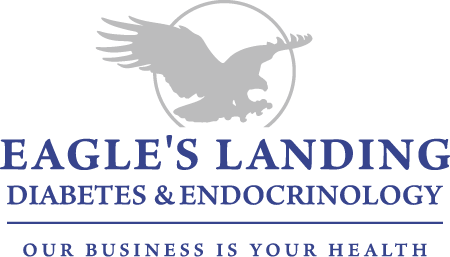What is the Thyroid Gland?
The thyroid gland is a butterfly-shaped endocrine gland that is normally located in the lower front of the neck. The thyroid’s job is to make thyroid hormones, which are secreted into the blood and then carried to every tissue in the body. Thyroid hormone helps the body use energy, stay warm and keep the brain, heart, muscles, and other organs working as they should.
What is Hyperthyroidism?
The term hyperthyroidism refers to any condition in which there is too much thyroid hormone produced in the body. In other words, the thyroid gland is overactive. Another term that you might hear for this problem is thyrotoxicosis, which refers to high thyroid hormone levels in the blood stream, irrespective of their source.
What are the Symptoms of Hyperthroidism?
Thyroid hormone plays a significant role in the pace of many processes in the body. These processes are called your metabolism. If there is too much thyroid hormone, every function of the body tends to speed up. It is not surprising then that some of the symptoms of hyperthyroidism are nervousness, irritability, increased sweating, heart racing, hand tremors, anxiety, difficulty sleeping, thinning of your skin, fine brittle hair and weakness in your muscles—especially in the upper arms and thighs. You may have more frequent bowel movements, but diarrhea is uncommon. You may lose weight despite a good appetite and, for women, menstrual flow may lighten and menstrual periods may occur less often. Since hyperthyroidism increases your metabolism, many individuals initially have a lot of energy. However, as the hyperthyroidism continues, the body tends to break down, so being tired is very common. Hyperthyroidism usually begins slowly but in some young patients these changes can be very abrupt. At first, the symptoms may be mistaken for simple nervousness due to stress. If you have been trying to lose weight by dieting, you may be pleased with your success until the hyperthyroidism, which has quickened the weight loss, causes other problems.
In Graves’ Disease (also known as Basedow’s Disease), which is the most common form of hyperthyroidism, the eyes may look enlarged because the upper lids are elevated. Sometimes, one or both eyes may bulge. Some patients have swelling of the front of the neck from an enlarged thyroid gland (a goiter).
What Causes Hyperthyroidism?
The most common cause (in more than 70% of people) is overproduction of thyroid hormone by the entire thyroid gland. This condition is also known as Graves’ disease (see the Graves’ Disease brochure for details). Graves’ disease is caused by antibodies in the blood that turn on the thyroid and cause it to grow and secrete too much thyroid hormone. This type of hyperthyroidism tends to run in families and it occurs more often in young women. Little is known about why specific individuals get this disease. Another type of hyperthyroidism is characterized by one or more nodules or lumps in the thyroid that may gradually grow and increase their activity so that the total output of thyroid hormone into the blood is greater than normal. This condition is known as toxic nodular or multinodular goiter. Also, people may temporarily have symptoms of hyperthyroidism if they have a condition called thyroiditis. This condition is caused by a problem with the immune system or a viral infection that causes the gland to leak stored thyroid hormone. The same symptoms can also be caused by taking too much thyroid hormone in tablet form. In these last two forms, there is excess thyroid hormone but the thyroid is not overactive.
How is Hyperthyroidism Diagnosed?
If your physician suspects that you have hyperthyroidism, diagnosis is usually a simple matter. A physical examination usually detects an enlarged thyroid gland and a rapid pulse. The physician will also look for moist, smooth skin and a tremor of your fingers. Your reflexes are likely to be fast, and your eyes may have some abnormalities if you have Graves’ disease.
You can find additional information at www.thyroid.org.
Thyroid Treatment
For thyroid disorders stemming from the overproduction or underproduction of thyroid hormones, treatment varies and may include monitoring thyroid function, medications, surgery, ultrasound, or radioactive iodine.
Dr. Ronald S. Watts Speaks on Thyroids
A thyroid biopsy is an ultrasound guided procedure in which a small sample of cells are removed from the thyroid gland to determine any thyroid abnormalities. This procedure requires little to no special preparation. When preparing for a biopsy, please leave necklaces/chains at home and wear comfortable clothing to make it accessible to examine the thyroid gland.
When you choose Eagle’s Landing for your thyroid ultrasound and/or biopsy, you’ll receive:
- Quality comprehensive care environment that is convenient and able to provide a continuum of care.
- Ultrasound guided FNA biopsy of thyroid cysts and/or nodules.
- Local anesthetics to help reduce any discomfort prior to the biopsy.
All ultrasounds and ultrasound-guided procedures are performed by trained and skilled sonographers specializing in the needs of our thyroid patients.
Additional Thyroid Resources
Click on the following links to download additional Thyroid resources.
